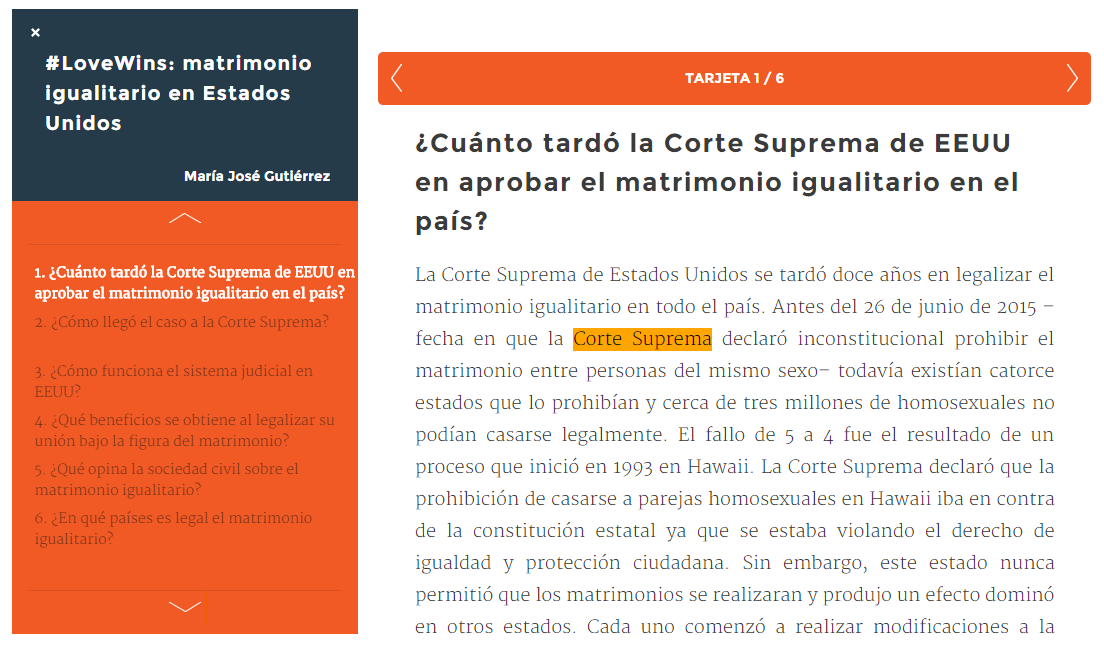Take the deep contributor pool of the Huffington Post, add the tone and perspective of Global Voices plus the card-style contextual reporting of Vox, and you have GkillCity, a multimedia news platform in Ecuador.
GkillCity, which launched in 2011, reports for audiences who are tired of agenda-heavy news outlets that are strikingly pro- or anti-government.
Styling themselves as a “counter-cultural” alternative to Ecuador’s polarized news environment, GkillCity hopes to empower citizens to become more informed and aware.
IJNet spoke to GkillCity Editor-in-Chief José María León Cabrera to learn more about his vision for expanding Ecuador’s media landscape.
IJNet: How do you define counter-culture?
José María León Cabrera: In a country like Ecuador, counter-culture means any independent act of defiance of the powers that be. That means that we do not have any political, nor financial or ideological attachments. GkillCity is the only digital media in Ecuador that [produces] pieces that present not only information, but knowledge. It does not produce breaking news but content with different approaches and ideas that are not taken into consideration by traditional media. Our pieces generate debate because they are critical of power and are produced without political or economic agendas. All the work we publish goes through a long and dedicated [editing] process. We care about the quality of our pieces.
We consider the content – research, sources, evidence – and the style: We try to apply narrative that makes a text much more interesting because of the way it is written. We have also put great effort into using multimedia resources, such as timelines, maps, videos and audio, that support the text. No one else is doing this. We are constantly searching for new ways of presenting information, such as our Medir el Mundo section, which uses interactive card stacks to explain the context of different conflicts around the world.
What is GkillCity’s connection to citizen journalism?
A premise of our project is that we cannot speak for others. So, we ask informed citizens to write and express their ideas, concerns and complaints. In our editing process, we act as a de-codifying machine: We take technical or academic language and, in a joint process with the author, translate it to a readable and well-structured piece.
There are over 400 people around the world that have collaborated with us. So for us, GkillCity is related to citizen journalism since it gives amplification to a number of voices that, otherwise, would not be heard.
This has to be put in context to be understood: In Ecuador, traditional media has privileged the same opinion-makers for decades. A study [done] in 2008 established that in 25 years, no more than 120 collaborators rotated through the opinion pages of the Ecuadorian press. That means that in four years, we've given more than three-and-a-half times more people [a place] to nurture ideas that are indispensable for a democracy.
Who is your audience?

Our audience is a little more than 300,000 unique readers monthly. They are women and men (almost 50-50) from Guayaquil and Quito, mostly 18 to 45 years old, who read GkillCity from their office and have a yearly income of US$30,000 to US$60,000. Our audience is very active: Not only do they read our work, but they share the content on social media and comment on text.
Some become part of our 400 collaborators from all over the world. They are mostly millennials who are — or will be, in a few years — decision makers, who care about what they read and want to be a part of it. They don’t only want to read breaking news. They feel the need to read analysis and stories with different approaches. We have a close relationship with our readers.
How does the mainstream media interact with you?
Well, after a period of skepticism, the national media has started to take us seriously. Now they understand that we are just another type of media, and most of them surf our website searching for news that they later produce for their own publications. The quality of our work has spoken for us, and we have become a respected voice.
International media has had less trouble identifying us as a quality media outlet: The French magazine Courrier Internationale has translated a couple of our works and has named us as one of its sources for the Americas, next to well-respected sites like The Atlantic and Vox.com.
What do you hope to accomplish with this project?
We do journalism because we believe in the power of stories to keep societies aware. We are not arrogant enough to believe journalism will change the world, but we think that – as long as our stories impact someone, even in a very small sense – injustices may find remedy, those who are ostracized may be heard and outstanding goals may be made known. We do journalism because it’s, at the end, a form of empathy. Also, one of the main purposes of Gkillcity is to raise the quality of Ecuadorian journalism by privileging the free flow of ideas, innovative ways of telling the news and giving voice to those that have been [often] neglected by traditional media.
This interview has been condensed and edited.
GkillCity is one of the three media startups chosen by Media Factory, Latin America’s first news accelerator program. Media Factory is an initiative of ICFJ Knight Fellow Mariano Blejman.
Main image CC-licened by Flickr via alh1. Secondary image screenshot of GkillCity's use of card stacks.

